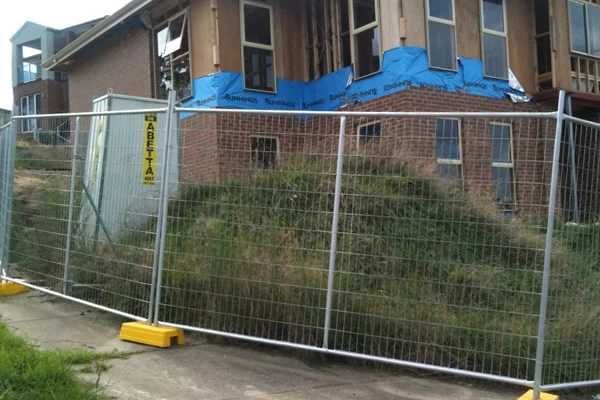 TEL:
+86-13102802206
TEL:
+86-13102802206
 Email:
fencenetting@china.com
Email:
fencenetting@china.com
 Language
Language
 TEL:
+86-13102802206
TEL:
+86-13102802206
 Email:
fencenetting@china.com
Email:
fencenetting@china.com
 Language
Language


The Advantages of Curved Gabion Retaining Walls
In the world of civil engineering and landscaping, the design and construction of retaining walls have evolved significantly over the years. One innovative solution is the use of curved gabion retaining walls, which combine functionality with aesthetic appeal. This article explores the features, benefits, and applications of curved gabion retaining walls.
What Are Gabion Walls?
Gabion walls are structures made of wire mesh cages filled with rocks, stones, or other materials. Traditionally, they are used to prevent soil erosion, manage drainage, and stabilize slopes. The flexibility and permeability of gabion walls allow for better water drainage compared to traditional concrete walls, which can trap water and cause pressure build-up behind the structure.
The Concept of Curved Design
Curved gabion walls bring a unique twist to the conventional straight retaining wall design. The curvature can be concave or convex, allowing for a variety of landscaping and functional applications. This design can integrate seamlessly into the natural topography, enhancing the visual appeal of landscapes and providing functional stability.
Aesthetic Appeal
One of the most significant advantages of curved gabion retaining walls lies in their aesthetic appeal. The natural materials used in gabion walls provide a rustic charm that complements a variety of environments, from urban settings to rural landscapes. The curve adds visual interest and can soften the harsh lines often associated with traditional retaining walls. It allows for creative landscaping possibilities, as plants can be integrated into the structure, enhancing the overall beauty of the site.
Environmental Benefits

Curved gabion walls are also environmentally friendly. The use of natural stones reduces the need for manufacturing concrete, thereby lessening carbon emissions and energy use associated with production. Additionally, gabion walls provide habitat for local wildlife. The spaces between the stones can create natural shelters for plants and small animals, promoting biodiversity in the area.
Structural Integrity
The structural integrity of gabion walls is enhanced by their design. The interlocking stones provide a stable structure that can withstand considerable lateral pressure from soil. This is particularly beneficial in locations prone to shifting soil or landslides. The curved form allows the wall to distribute forces more evenly, reducing the risk of failure compared to straight walls.
Drainage and Erosion Control
Effective drainage is crucial for the longevity of any retaining wall. Curved gabion walls excel in this regard due to their porous nature, which allows water to pass through the stones and reduces hydrostatic pressure. This feature is particularly valuable in areas with a high water table or with heavy rainfall. By controlling drainage, these walls help prevent soil erosion and minimize maintenance costs associated with landscape degradation.
Applications in Landscaping and Construction
Curved gabion retaining walls can be utilized in various applications. They can define garden beds, create terraces, or provide seating areas in public parks. Due to their adaptability, they are also suitable for residential projects such as garden landscaping, pathway borders, or pool surrounds. In larger construction projects, they can stabilize hillsides, manage stormwater, and prevent erosion along waterways.
Conclusion
Curved gabion retaining walls offer an excellent blend of functionality, sustainability, and aesthetic appeal. Their unique design allows for creative landscaping solutions while providing structural integrity and drainage efficiency. As environmental considerations become increasingly critical in construction and landscaping, curved gabion walls represent an innovative approach to modern engineering challenges. Whether for residential or commercial applications, the benefits of these retaining walls make them an attractive choice for those looking to combine beauty and functionality in their projects.